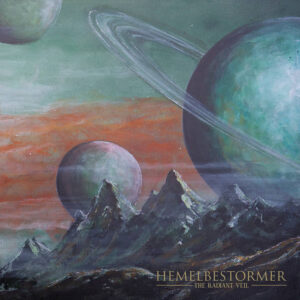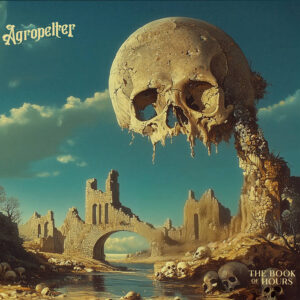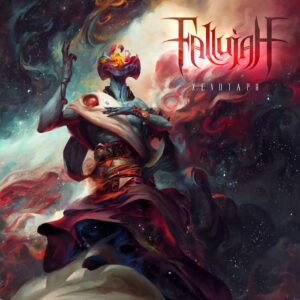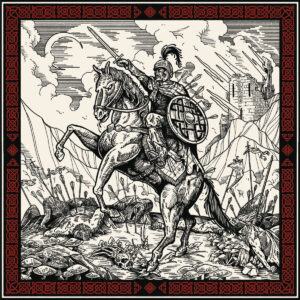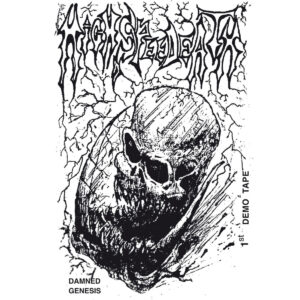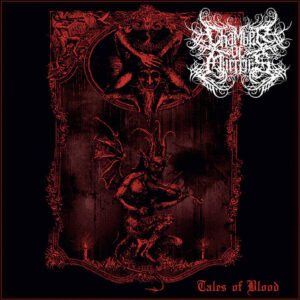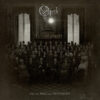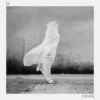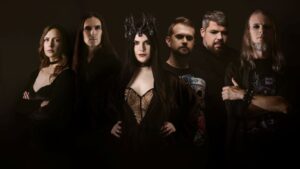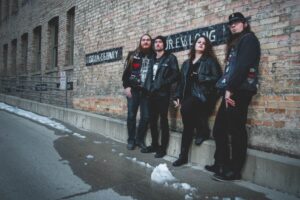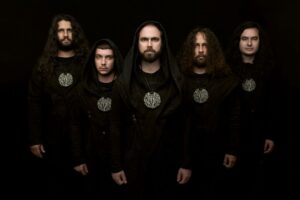Miriam Gardner / Blake Gardner
Wintergarden
•
July 30, 2014
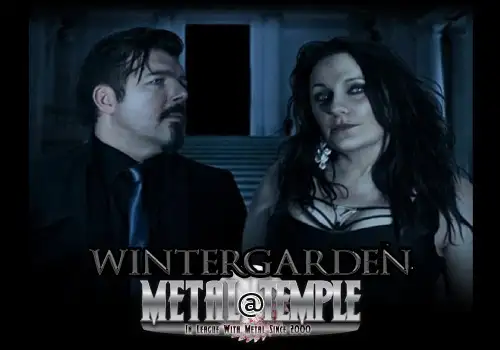
Blake: Thank you!
Miriam: You're welcome, thank you!
Blake: Quite excited about it, quite honestly, and hopefully if your review is anything to go by I'm just really looking forward to it.
Blake: Yeah me too!
Blake: Yeah we welcome it.
Blake: Yeah well it's quite a story itself and it's quite in-depth because Wintergarden is kinda the climax and convergence of our musical relationship where we come from two different backgrounds within music and a lot of our relationship here has been trying to find a—
Miriam: Common ground.
Blake: Yeah a common ground where both of those styles could meet and our relationship could be expressed in music as it is in our daily life. And that's not always an easy process and definitively not always and easy thing but it's something that's worth taking up as a challenge for our relationship. And yeah we've been working on it for a couple of years and gone through a couple of different projects but Wintergarden has been the project where the stars have been aligning for us musically, so to speak.
Blake: No, no, no but eum—
Miriam: You've got to be tough; you've actually got to be tough.
Blake: Yeah as a matter of fact you do, and of course it's not easy because you're putting an artistic level and dimension on top of your 24/7 affair. But it's as rewarding as it is challenging, I might say, because you know on one side you're putting a lot more pressure on the relationship but on the other side you open up the possibility of greatly enhancing your relationship and that's kind of the way we've been looking at it, you know, to accept the challenges that it brings us as a further negotiation of our relationship on a musical and artistic level blended in with all the practicalities of daily life. And yeah it's a difficult process and it's something that we talk about but it's something that at the end of the day strengthens our relationship and it ends up with us respecting one another more and more not just for our personal traits but also for our musical traits. So it's really another door of understanding and it's been difficult but if you hang in there, I guess the key to the whole thing is endurance and perseverance, the rewards are definitely there for the taking and we feel that it's been a fantastic choice. re definitely there for the taking and we feel that it's been a fantastic choice
Blake: Yeah well if you're gonna break it down black and white my musical background is quite diverse in that I come initially from a Punk background where you learned the instrument by hand and you had to set up yourself and you made your own band and such, and that eventually lead into Hardcore and then into Metal and Progressive and Psychedelic music, whereas Miriam comes from a completely different bare end of the spectrum with more Pop, Soul and Gospel and where it's about learning the art and the craft of the music and the importance of notes and all that. So for us coming together was just like two worlds colliding and it took some effort to really learn to appreciate each other's perspective in order to get that dream of trying to combine our music, and that's definitively some process. And we've gone through several different projects to try and accomplish that and this time around it seems to be working better than ever. So I guess it really boils down to accepting and appreciating the difference in musical tastes and respecting one another, and then making something practical with it by mesh those styles together and try to make a unique and sincere sound out of it. And it's really a trial and error process.
Miriam: You do have to want to be challenged because it is a challenge to do something you're not used to doing.
Blake: Yeah I mean for instance I made an album for Miriam just purely for her Pop and told her that if I helped her maybe she could help me with some of my stuff so it started off as a bit of a bartering before it came down to us wanting to do a project together. And that took me accepting where Miriam was coming from, but also for Miriam to accept the style of music that I'm into and that took quite a long time. I think it really broke down one summer during a summer trip when I was deliberately playing a lot of Sevendust because I knew that Miriam was really focused on skill and talent and good vocals, and you know since she couldn't escape the car during the trip during those long drives and I was just playing Sevendust. And I think the Melodic sound of Lajon (Witherspoon)'s vocals and his bluesy style really helped her get an insight into Metal whereas before she would just hear it and think it was just noise without craft or talent behind it.
Miriam: I became a huge Sevendust fan actually!
Blake: Yeah and we ended up seeing and meeting him so in the end it was kind of a nice story.
Miriam: Well I'm the one who writes the lyrics and we basically have our own areas that we are responsible for but when we're in the studio it's somehow always a conversation and wen I've done my lyrics I talk to Blake about them and he always comes with great comments, I guess I like having his approval of what I'm doing, and he does come with some great ideas every now and then.
Blake: Yeah if you're coming from a completely lyrical point of view then, I mean we're both very involved with every aspect of the project; basically my vibe is more, eum—
Miriam: Esoteric.
Blake: Yeah, esoteric and political whereas Miriam's lyrics are more personal and about personal experiences and how she experiences life and that's not really how I write my lyrics.
Miriam: I've written a lot of songs before I hooked up with Blake and I used to love to just compose songs by the piano by myself about, you know, my life and what I'm going through and I guess that's still my style of lyrics.
Blake: So Miriam's a little bit more heartfelt whereas I would tend to be more intellectual, so to speak, but musically I think it has become a though-our process about what we want to do by now. We've been saying that Miriam should stop trying to compete with Mariah Carey and Whitney Hourson and instead drag her butt into the Metal scene where she could be a huge fish in a rather small pond, or at least that has always been my idea and her problem has been that she wants material where the can express herself. And to try and come out with some sort of Pop format in Metal can be risky business but these days when Metal is so diversified genre-wise you can really do that and you can like we did, and like you astutely pointed out in the review, fuse a lot of styles together like Rock, Pop and Metal and that's really to keep Miriam's offering to the project as relevant as possible.
Miriam: You could say that it's like Blake woke me up from an RnB coma, because I always listened to RnB at the time but I used to listen to more rock when I was younger like AC/DC. But at some point I got a little lost in the RnB and Soul scene and it felt really great to be woken up to experience that there were other areas and dimensions where my emotional expressions could take form. So I feel that it's been an enrichment to get to do that.
Blake: And because we've done other projects I feel we've become less egotistical than we perhaps were in our earlier careers, and that have helped us with our aim to enjoy and to make our own sound and to not make this project so self-indulged, like you pointed (in the review) out we didn't do any complex sections or do a lot of soloing or showing off on this project because we've done that in the past and in this project it really is about the simplicity because it can be communicated to a lot more people if it is simplified. Of course you don't want to simplify it to the point where you've cooked out all the ingredients but it's a fine line and our aim is to simplify in order to maximize Miriam's offering to the project with her voice and her skills and what she can do. But like you mentioned (in the review) there are some little glimpses of that Progressive nature here and there but we never take it to that—
Miriam: We've actually done a lot of projects like that actually, but that no one wants to listen to them, haha!
Blake: But we love it, haha! But yeah you could say that there's more of a common sense approach to this project, like business-wise and artistically, but also to help accommodate Miriam.
Miriam: But it's also like, in the RnB world all the singers have to show off with a lot of phrasing and I feel like Rock and Metal are in some ways the same these days with the showing off parts but it's not necessarily where the heart of the music or the song is at, and you can strip it down to an actual song where you know your neighbor can listen in and hum along or sing along and just have a good time together.
Blake: And that's kind of really challenging these days with all the distractions out there and it's also, like I said before, that you don't wanna go to the point where you've cooked out everything to where it's just empty and shallow, and we've really enjoyed this challenge of combining these musical styles and cultivating our relationship and making this into what we wanted it to be.
Blake: Yeah well my definite challenge and the hardest thing for me is knowing yourself and what you stand for and what your principles are, because it's such an influential industry and also world media-wise, so it's easy even for an artist with integrity to get caught up with what sells or what's popular. There are so many influences that can take you away from your pure inspirations, and then you've got considerations to third parties like record companies and publishers who all have or at least want their say in the matter. So for me it's really about keeping your eye on your own personal vision and where you are in relation to that, because I like having a lot of counsel and I like getting a lot of advice but at the end of the day you gotta take that home and cook that down yourself in relation to your own personal vision and be careful so you don't get taken off on someone else's agenda or path. And that happens actually pretty easy, especially if you're a younger musician, because I've been younger and been involved with big labels where you're taught to respect these people's opinions but sometimes it can be counterproductive to your long-term career and your vision so it can be a real juggling act. And I don't think a lot of people think about that because there's a big party atmosphere in music and a party lifestyle to it, but I think Miriam has a different perspective on this.
Miriam: Yeah no I just think it's about staying open-minded especially about genres and the like, because you can about yourself as a certain type of artist and there's a lot of that going on in the music industry where you say, "Well what type or artist would you like to be?", and it's like you would say, "What kind of personality would you like to have?", and I just think it's a discovery process. And taking this challenge for me has meant so much and been so great, because now if I'm out taking a job singing pop or gospel then I can take with me the passion and liberty that I've found by cranking up the Roc. Or rather remembering the Rock because I started off playing air guitar to AC/DC when I was younger, but it's easy to get stuck and as an artist I think it's really important to get unstuck if you are and I'm really glad that I've had Blake to push me to discover something new and help me get unstuck.
Blake: And on that point that Miriam mentioned there, we've also broken down our composition molds in that area and have experimented writing with other people which has been really opening and learning and you get new input and that process has been really humbling and exciting. A lot of your own personal insecurities about your capabilities and your abilities become confronted in situations like that and we've really been challenging ourselves that way by working with other people, new people, to help us bring our artistic vision and competence to a new level.
Blake: Yeah I mean obviously only good things can come out of it. But it is challenging to your own ego to work with other musicians and artists because personal insecurities can be attached to the thing we do and they get in the way. But yeah if more musicians would interact and do things together that'd be great, and I know that management and labels can come in the way with their politics and policies but it would be a lot more dynamic with all those ideas flowing around and collaborations and maybe even new styles emerging from those collaborations.
Miriam: Well yeah you know these days you don't have to fly to L.A. to record a song with your favourite guitarist or another musician and instead you can just go online and basically share the files with the music that you want to make together.
Blake: How it actually came about though for us personally, I mean the technology has been around for a while, but for us it came about by having these bands in the traditional band setup just wasn't working. We had a band and—
*Internet Connection loss on Blake and Miriam's side*
Blake: Yeah we basically fell into the file-sharing situation out of necessity because doing things the traditional band way, a lot of people can probably relate, with getting people together and creating a band name and then you try to write songs and rehearse them, and then you've got guys who just want to get out and play live and live that lifestyle whereas we were more focused on creating the music and the content, and this can be a very long, drawn-out and expensive process doing it the band way. So we wanted something new and fell into file-sharing, I had a guitarist friend in L.A. and he was having a similar situation so we ended up composing in our own studios and then sharing our ideas and compositions, and I saw that there wasn't that same necessity for that traditional band setup and you could just rather collaborate with or hire musicians which, in the long run, was cheaper and more productive for us. And since going into file-sharing the creative process has really sped up and become more streamlined so we've never really looked back since. And it has allowed us to be more contemplative about where we're going and with that streamlined process where you're in the studio the whole time and you're having a band meeting, composing songs and recording material at the same time and I honestly wish I'd had this opportunity when I first started out because it's kinda great!
Blake: The pros and cons are basically that with file-sharing you've really got unlimited opportunities with the file-sharing and you can choose who you want to work with, be it other musicians or friends, and as long as you have a half-decent recording setup and the ability to share the files you get a lot more control over the direction of your musical development. The advantage on the other hand of having like a group of school mates who you have known forever and have a really unique chemistry and sound with, you know like the Chili Peppers, then you've got an advantage there and really so a live advantage. But even if you break down something like the Chili Peppers or Metallica or another legendary band you can still find a core composing process within every band. So yeah if you do it the traditional band way I guess you get a live advantage, but I mean today if you have a budget you can get killer musicians and you can avoid those internal struggles and problems that can arise in bands due to personal differences and so forth that can jeopardize a fantastical musical career or project. So while there are pros and cons, if you've got a strong vision of where you want to go and what you want to do with your music and you've got the core with the writing and the composing of the music then I'd say that file-sharing the way we're doing it is definitively a viable option.
Blake: Only nationally as we've only been playing here in Denmark as of yet as Wintergarden, but we've made a decision as far as touring goes that our first aim was to get the project up and running with creating the music and the sound and doing the recording, as well as doing promotions and getting to the stage where we could get a deal with a record label here in Denmark. And we've succeeded in that so far so I guess that part of the mission is over and we're actually working with a booker to get a tour going in Germany sometime this fall, nothing on the cards or settled though yet, and that's where we're working towards right now.
Blake: Not particularly, it's been eum—
Miriam: It's been experimental!
Blake: Yeah experimental, like I mentioned we basically started off with a band and got a band contract going but then the guys where young and had their own ideas and things happened and that lead us to hire session musicians to fulfill obligations we had to some shows. And that really lead into the idea of continuing to work with file-sharing and—
Miriam: And focus on the song writing.
Blake: Yeah and the touring, and from my perspective I mean I really want to do the touring but as an addition to creating a demand because I prefer working in the studio and with the technology we've got today I just feel like there's so much you can do with the material and getting releases done and creating a demand that way.
Miriam: We did try an acoustic set to try out some of the material and the new songs here at a local place and it was good fun, and we're really looking forward to getting out and touring but there's got to be a demand and that's what we're working on at the moment.
Blake: Well first of all I think it has been a great confirmation for us, with what we're doing and the choices we've made, that these people have decided to involve themselves in our project because they have a name and a reputation to think about so they don't involve themselves in projects that they don't believe in. So we're taking it really humbly and being appreciative that these people recognize and dig what we're doing enough to want to take part in what we're doing. So yeah that really came about by meeting Clint and then getting back to him a while later and presenting him with the material and him digging it. And it's been really great because working with musicians like that it really brings up your own game because it challenges you to.
Miriam: Do your best and you always want to do that. But for me, at least, it was a new thing with liking the music of Sevendust then getting the opportunity to write with this amazing guitarist, it was just such an inspiration and a lot of fun; your project is suddenly taken to a whole new level and you're having so much fun doing it. And no one in Denmark knows who Sevendust is and that's just such a shame because we really love Sevendust and appreciate the chance to work with them.
Blake: And Clint really is a great composer whose compositions really harmonizes with the direction that Wintergarden is taking so it was a really great collaboration.
Miriam: Well we had the Steampunk Deluxe EP that we put out ourselves and I dunno have you ever looked at any steampunk pictures—
Miriam: Okay, yeah well we just really liked it a lot and we felt we were going in that direction. And it's a fashion statement in a way because I like fashion and I like the new stuff but I also like that old Victorian style and we felt that with the direction we were taking that it just fit this certain kind of steampunk that we really like that we feel we're taking to the next level.
Blake: And I mean it's a visual branding of the band and it's kind of a classy take on the steampunk style and it became a verbalizing along with the art style of the album of taking something old and modernizing it is kind of what Victorian stands for. Miriam then has that fashion aspect of it and I have that esoteric vibe instead where you're trying to make something new but is there really anything new under the sun? I mean you can really just combine and re-combine elements and try to make your own mark on it, and that's kind of what "The New Victorian" means for me.
Miriam: I also think that we with us having a past in Rock n' Roll and now we've started living our lives in a more quiet and stable way, you know we've got kids and such, so it's kind of a renewal for us but we could probably do like half an hour on that question!
Blake: Yeah but in essence it's a branding of the imagery that we want to associate with Wintergarden as well as an esoteric wordplay with what we're trying to do with combining new and old things into our own thing.
Blake & Miriam: Thank you!
More results...
